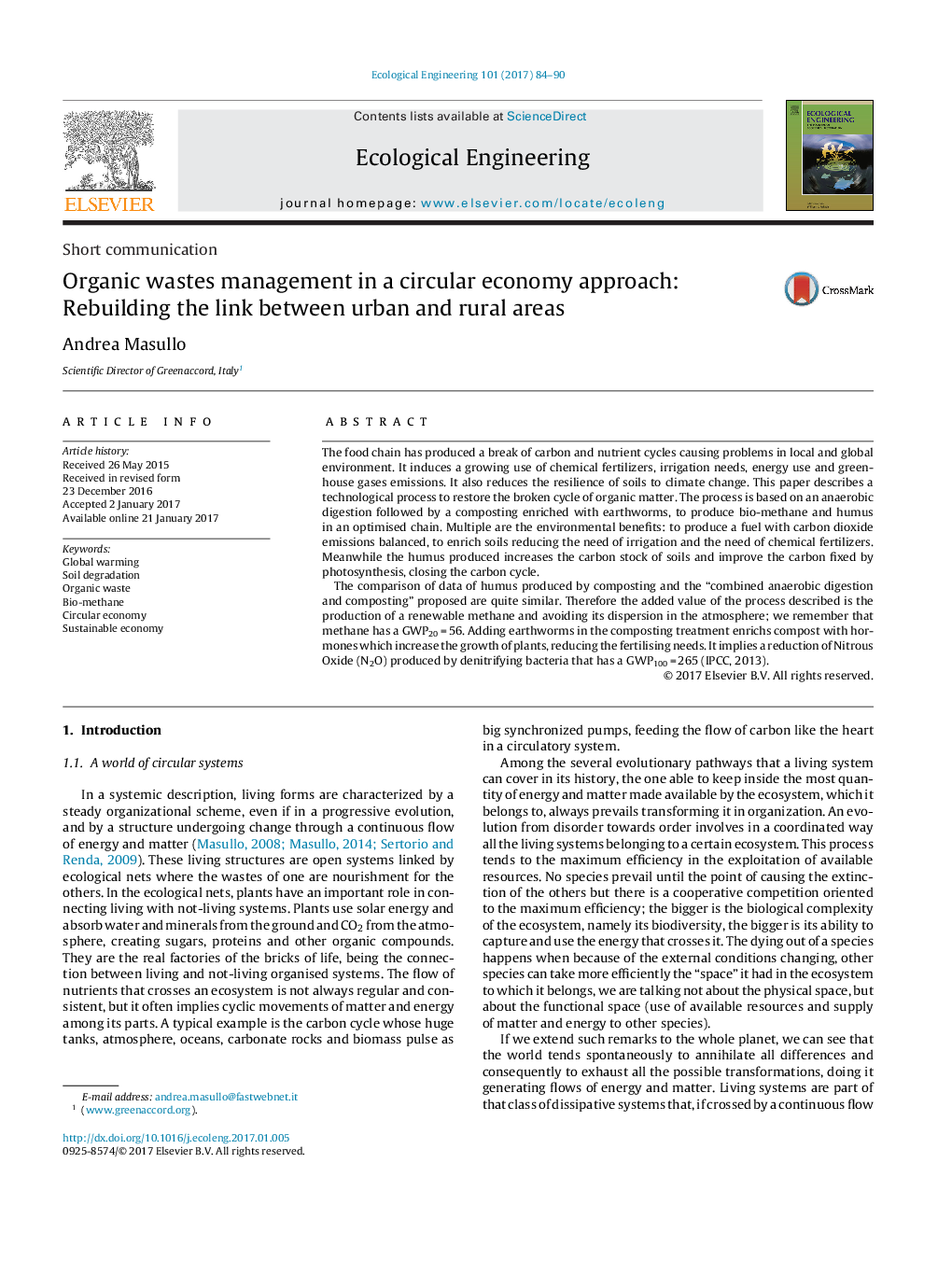| Article ID | Journal | Published Year | Pages | File Type |
|---|---|---|---|---|
| 5743917 | Ecological Engineering | 2017 | 7 Pages |
â¢Human economy often breaks the circularity of natural economy: this is the case of organic wastes.â¢Organic wastes incinerated or landfilled have an important climate impact.â¢We studied a treatment process to capture and fix the most possible CO2.â¢We optimised the process to enhance the quality of materials to be recycled into soil.â¢The quantity and the quality of the bio-methane obtained allow the full economic sustainability.
The food chain has produced a break of carbon and nutrient cycles causing problems in local and global environment. It induces a growing use of chemical fertilizers, irrigation needs, energy use and green-house gases emissions. It also reduces the resilience of soils to climate change. This paper describes a technological process to restore the broken cycle of organic matter. The process is based on an anaerobic digestion followed by a composting enriched with earthworms, to produce bio-methane and humus in an optimised chain. Multiple are the environmental benefits: to produce a fuel with carbon dioxide emissions balanced, to enrich soils reducing the need of irrigation and the need of chemical fertilizers. Meanwhile the humus produced increases the carbon stock of soils and improve the carbon fixed by photosynthesis, closing the carbon cycle.The comparison of data of humus produced by composting and the “combined anaerobic digestion and composting” proposed are quite similar. Therefore the added value of the process described is the production of a renewable methane and avoiding its dispersion in the atmosphere; we remember that methane has a GWP20Â =Â 56. Adding earthworms in the composting treatment enrichs compost with hormones which increase the growth of plants, reducing the fertilising needs. It implies a reduction of Nitrous Oxide (N2O) produced by denitrifying bacteria that has a GWP100Â =Â 265 (IPCC, 2013).
